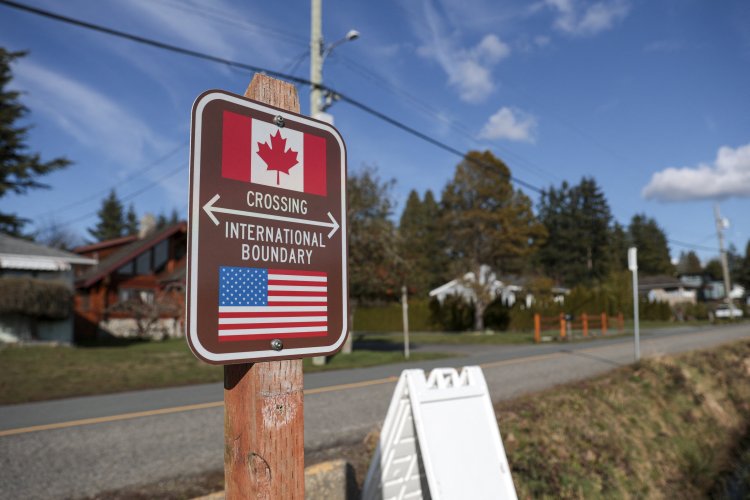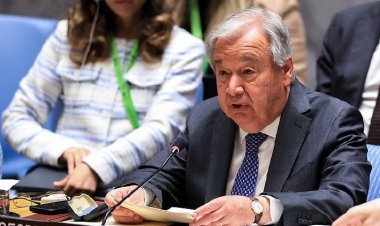'Not going to support that guy': Canadians halt trips to the U.S. in response to Trump
NEW YORK — Top U.S. destinations are reaching out to Canadians with a clear message amid declining tourism: You’re welcome here, no matter who is president. However, many Canadians anticipate that their reluctance to spend in the U.S. may continue...

The impact is evident with cancellations of tour buses to New York City, fewer cross-border shopping day trips, and a significant drop in travel agency bookings.
Travel Group, based in Vancouver, has reported a staggering 90 percent decrease in future bookings. Meanwhile, Ottawa’s Travac Tours has halted all its U.S. tours through July, and Kingston, Ontario's Maple Leaf Tours has experienced a business decline of 70 to 80 percent.
“It was always such a happy time whether we were going to Myrtle Beach or Florida or Boston or the Cape,” said Kristine Geary, founder of Maple Leaf Tours. “Now it’s anxiety and apprehension and nerves. It’s ‘will I be safe?’ And it’s hesitation. Some people are saying, ‘I’m not going to support that guy.’”
Businesses on both sides of the border are preparing for more challenging months ahead. A forecast from analytics firm Tourism Economics indicates that Canadian travel to the U.S. could fall by 20 percent this year, resulting in a $3.4 billion loss in revenue relative to last year. In New York’s North Country, which shares a long border with Canada, a recent survey found that 66 percent of businesses have already noticed a decrease in Canadian bookings for the year.
Current U.S.-Canadian relations show no signs of improvement. Longstanding ties have soured amidst Trump’s threats to annex Canada and his imposition of tariffs, including a 25 percent tariff on certain Canadian goods. Moreover, travel advisers have expressed concern over the potential for tourists being held at the border by U.S. Customs officials, a worry fueled by reports of travelers being detained at crossings.
What began as a response to Trump’s derogatory comments about Canada — “Canada only works as a state,” he has stated — has evolved into reduced spending amid broader economic concerns. Industry leaders are particularly anxious as the U.S. gears up for major events like the 2026 FIFA World Cup and the 250th anniversary of the country.
Cities and states heavily reliant on tourism are determined to attract Canadians by promoting positive messages and showing that they are not defined by Trump’s presidency.
The nonprofit Visit California has emphasized, “You’re welcomed and respected in California.” Similarly, Visit Lauderdale, promoting Florida’s Broward County, reassures Canadians that they “are always among friends.” The North County Chamber of Commerce in New York has supplied local businesses with “Welcome Canadians” signs and other promotional efforts.
New York City’s tourism sector is relying on its global marketing campaign launched last fall, titled “With Love + Liberty, New York City.”
“I think generally people from Canada and Europe know that New York City is a welcoming place for people from all around the world,” said Andrew Rigie, executive director of the New York City Hospitality Alliance. “But it is going to take an investment to remind people that locally, we want you here, and you’ll have a wonderful experience regardless of what our national rhetoric may be.”
New York City has historically attracted Canadian school groups, retirees, and other visitors looking for a nearby getaway. With major attractions such as the Statue of Liberty and Broadway shows, the city typically has been less vulnerable to fluctuations in tourism trends than other areas, partly due to its strong liberal reputation.
However, Democratic-led cities and states may face an even greater decline in Canadian visitors than they did during Trump’s first term.
“After the 2016 election, a lot of Canadians were more willing to go to spend their money in places in the U.S. that they perceived had similar values to them: California, Hawaii, the entire West Coast, New York, and the Northeast, including Boston,” noted McKenzie McMillan, a travel adviser with the Vancouver-based Travel Group. “Now, many Canadians are wrestling with the question of ‘Do I go? Or is this something that I need to take a stand on?’”
The reduction in visits has affected border regions, as Canadians are now hesitant to drive a short distance to U.S. restaurants and shops. This shift has struck a personal chord between neighbors.
In New York’s North Country, represented by Rep. Elise Stefanik and at the forefront of the U.S. trade conflict with Canada, the effects are becoming increasingly pronounced. Trump had previously suggested Stefanik for a U.N. ambassador position but ultimately withdrew the nomination amidst the tariff controversy and worries about the GOP's slim margin in the House. Senate Minority Leader Chuck Schumer has worked to highlight how tariffs are severely impacting the local economy.
Garry Douglas, president and CEO of the North Country Chamber of Commerce, expects instability to persist as Canada approaches its federal elections on April 28.
“We especially feel and appreciate the sense of hurt as one would with one’s family,” Douglas told PMG. “Not just for economic reasons but because our people-to-people connection is deeply valued here.”
Data from U.S. Customs and Border Protection indicates that there was an almost 12 percent decrease in travelers crossing the northern border in February compared to February 2024, with a steeper decline anticipated for March. The White House has claimed that tourism will recover once Trump’s objectives are achieved.
“President Trump’s agenda to make America wealthy, safe, and beautiful again benefits Americans and international visitors alike,” stated White House spokesperson Anna Kelly. “New York will break tourism records when the Trump administration is finished deporting illegal migrant lunatics who set subway riders on fire.”
Canadian travel planners believe that a return to normalcy in travel patterns is more likely in a post-Trump landscape.
“I think it’s going to be four years,” Geary of Maple Leaf Tours remarked about the ongoing impact on travel and commerce. “I hope I’m wrong, because it’s a killer on my business. But there’s so much anxiety."
Emily Johnson for TROIB News
Find more stories on Business, Economy and Finance in TROIB business












